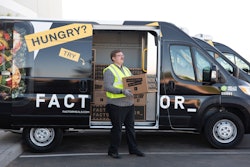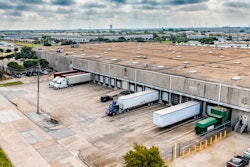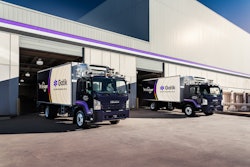In today's online shopping landscape, efficient delivery is paramount. But the thrill of an anticipated package can sour with delivery issues. These troubles often culminate during the "last mile," the final crucial stretch of delivery.
If you've ever wondered why your eagerly awaited package seems to take unexpected detours, or if you're looking to streamline your delivery process, read on. Your journey towards achieving smooth, stress-free deliveries begins right here.
5 common last mile delivery problems
The last mile of delivery, though small in distance, can often be large on challenges. It's the stage where the culmination of efforts to get a package to its destination faces its final test.
Poor packaging
Imagine eagerly waiting for a long-awaited package only to find it arrived damaged. Poor packaging is frequently the culprit behind goods getting damaged in the last mile. Inadequate protection, insufficient cushioning, and flimsy materials can leave items vulnerable to mishandling and harsh environmental conditions. This problem impacts the customer experience and can lead to returns, additional costs, and even negative reviews for businesses.
Wrong address
Mistakes happen, and when they do, delivering to the wrong address can be a significant setback. Whether due to manual entry errors or unclear address labels, packages sent to incorrect locations can cause delays and frustration for both customers and delivery personnel. Correcting this problem often requires time-consuming efforts, such as rerouting the package or coordinating with the recipient to redirect it.
Lost package
The nightmare of every shopper and retailer alike: a lost package can throw a wrench into the entire delivery process. It could be due to mismanagement in the sorting facility, inaccurate tracking information, or theft. Regardless of the cause, losing a package results in a negative experience for customers who were eagerly awaiting their order and can lead to distrust in the delivery service.
Late delivery
Late deliveries are a common source of frustration for customers. An estimated delivery date sets certain expectations, and failing to meet them can lead to disappointment. While delays can stem from various factors like traffic, weather conditions, or route inefficiencies, it's crucial for businesses to communicate effectively with customers about potential delays and keep them informed about the status of their deliveries.
Damaged goods
Even when a package reaches its destination, it's not uncommon for the contents to be damaged. Rough handling during the last mile, stacking heavy items on top of fragile ones, or simply not taking proper care during unloading can result in goods being compromised. This problem not only affects customer satisfaction but can also lead to returns and replacements, causing additional costs for both consumers and retailers.
7 ways software can help solve problems with delivery
With the right software tools, businesses can transform the last mile from a maze of obstacles into a seamless experience for both customers and delivery teams. An exploration of how software can be a game-changer in overcoming common delivery problems.
Create efficient delivery routes
Software solutions can optimize delivery routes by factoring in variables such as traffic, distance, and time constraints. By doing so, businesses can reduce travel distances, lower fuel consumption, and minimize the chances of late deliveries. This proactive approach not only boosts efficiency but also enhances customer satisfaction as accurate delivery estimates become the norm.
Use auto-dispatch
Automation isn't just a buzzword, it's a valuable tool that can streamline the delivery process. Auto-dispatch algorithms match the right delivery driver with the correct order, considering factors like proximity and capacity. This ensures that deliveries are evenly distributed and completed in a timely manner, reducing the chances of overburdened drivers missing their targets.
Maintain communication with customers
Effective communication is at the heart of customer satisfaction. Software enables businesses to send real-time notifications to customers about order confirmations, estimated delivery times, and any potential delays. This transparency keeps customers informed and minimizes the frustration that can arise from uncertainty.
Provide customers with real-time delivery tracking
Empower customers with the ability to track their orders in real time. From pickup to drop-off, tracking tools offer transparency, peace of mind, and the convenience of knowing exactly when to expect their package. This not only enhances the customer experience but also reduces inquiries and support requests.
Offer customers proof of delivery
Digital proof of delivery eliminates the ambiguity around whether a package was successfully delivered. With software, delivery personnel can capture photos, geolocation data, and even customer signatures as evidence of the delivery's completion. This feature ensures accountability and mitigates disputes related to undelivered items.
Review analytics
Data-driven insights are invaluable for optimizing operations. Software can provide analytics on delivery performance, identifying bottlenecks, areas for improvement, and delivery trends. By analyzing this information, businesses can make informed decisions that lead to better resource allocation and enhanced customer experiences.
Collect remote signatures
Electronic signatures via software streamline the delivery confirmation process. Instead of manual paperwork, delivery personnel can collect signatures electronically using mobile devices. This not only saves time but also reduces the risk of errors and enhances the overall efficiency of the process.
Ready to avoid delivery problems?
Software solutions are transforming the landscape of last mile delivery. With software, businesses can eliminate problems like late deliveries, lost packages, and damaged goods. Efficient route creation, real-time customer communication, and tracking capabilities redefine expectations, improving operations and nurturing customer trust.











